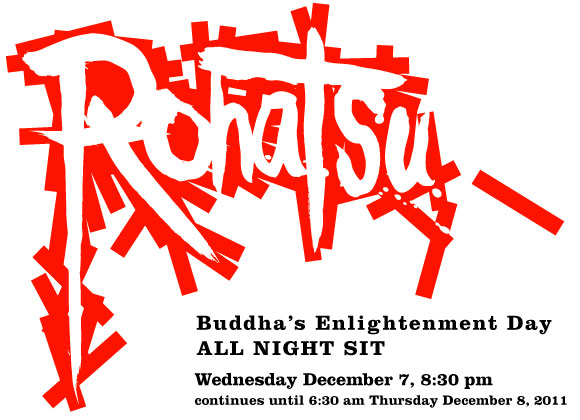Dec. 8 is Bodhi Day, the day of the Buddha's enlightenment.
The story -- and it is a story, an unverifiable tale used to educate his followers -- is that while meditating under the Bodhi tree, the Buddha was harassed and tempted by the god Mara (literally, "Destroyer" in Sanskrit), demon of illusion. In an attempt to dissuade the Buddha from his path of awakening, it is said that Mara presented him with many temptations to muddy his thinking: Dancing girls, intoxicants, memories of his past lives, a hail of arrows. Each time, the Buddha realized what was happening, and said, "I see you, Mara." Resting in his clear mind, the Buddha discovered the law of karma, the cycle of rebirth, the Eightfold Path, and the Four Noble Truths. He would go on to teach those.
It is said that that the last of Mara's weapons was doubt. When Mara said, essentially, who do you think you are, thinking you can become enlightened? The Buddha simply touched the ground with one hand, an indication that he was someone who was in touch with the undiluted, non-illusory present moment.
As the morning star rose in the sky in the early morning, he experienced nirvana and became enlightened.
Then he went on to teach for many years.
The two crucial aspects of the Buddha's Awakening are the what and the how: what he awakened to and how he did it. His awakening is special in that the two aspects come together. He awakened to the fact that there is an undying happiness, and that it can be attained through human effort. The human effort involved in this process ultimately focuses on the question of understanding the nature of human effort itself — in terms of skillful kamma and dependent co-arising — what its powers and limitations are, and what kind of right effort (i.e., the Noble Path) can take one beyond its limitations and bring one to the threshold of the Deathless. Thanissaru BikkhuBodhi Day isn't a big celebration day. The Japanese Zen tradition seems to observe it the most widely with Rohatsu sesshin, an intense period of meditation that starts the week before, on Dec. 1, and ends when the morning star comes up Dec. 8. Often participants will stay up all night on the last night, meditating.
From within this state of mind the Buddha said: How wondrous, how wondrous! All beings are endowed with this pure nature! What a wondrous, astonishing thing has been realized! All the ten thousand things, all the flowers, all the trees, all the rocks, all things everywhere are shining brilliantly!
You've probably missed this morning's star. But the beautiful thing about the story is that every day is a good day to wake up. The stars are always there -- you don't see them in the daylight, but they're there -- and something in your sight always is shining brightly. You can always look at a star and see the brilliance of our pure nature.
Or you can celebrate western-style at IDP's annual party. Get your groove on!


No comments:
Post a Comment